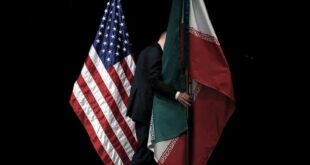 Iranian President Mahmoud Ahmadinejad and his Turkmen counterpart Gurbanguli Berdymukhamedov stressed development of the two countries’ relations in all the various areas and at all levels. Speaking to reporters during a press conference in Ashgabat on Wednesday, the two presidents also viewed the two-day visit to Turkmenistan by Ahmadinejad as a milestone in the consolidation and deepening of bilateral ties.
Iranian President Mahmoud Ahmadinejad and his Turkmen counterpart Gurbanguli Berdymukhamedov stressed development of the two countries’ relations in all the various areas and at all levels. Speaking to reporters during a press conference in Ashgabat on Wednesday, the two presidents also viewed the two-day visit to Turkmenistan by Ahmadinejad as a milestone in the consolidation and deepening of bilateral ties.
The Iranian president voiced deep pleasure in his talks with Berdymukhamedov, saying that the two sides have had desirable talks about the lustrous prospect of the expansion of the two countries’ cooperation in the different political, economic and cultural areas.
“The Islamic Republic of Iran supports Turkmenistan’s general policy on regional and international issues and the two countries’ borders will remain as borders of peace and friendship forever,” Ahmadinejad said.
Reminding the two countries’ common culture and joint interests, he said that Tehran and Ashgabat’s relations have always been on the increase during the last 17 years, adding that the two states have also had abundant cooperation in grounds of transportation, water, trade and energy.
“This trip will be an opening to the rapid development of the two countries’ relations,” the president said.
For his part, the Turkmen president noted that the endorsement of several cooperation agreements between the two countries indicated the two sides’ resolve to expand ties, and expressed the hope that the said agreements would further promote Tehran-Ashgabat cultural and economic relations.
He further pointed to the two sides’ agreements on water, trade, economic and cultural cooperation as well as production of joint cultural products as among the achievements of the visit to Turkmenistan by Ahmadinejad.
“I am confident that the signed agreements would play a beneficial role in the future of the two nations and countries,” Berdymukhamedov said.
He also described Iran as a friend and brother of the Turkmen nation, and said, “The two countries have very good relations with each other and share common views about regional and international policies.”
 Eurasia Press & News
Eurasia Press & News


